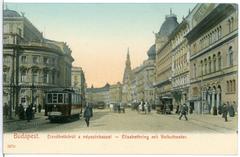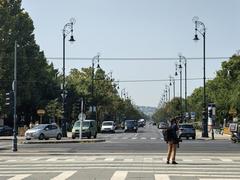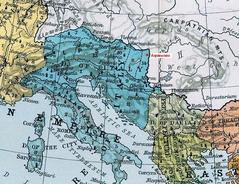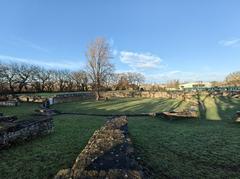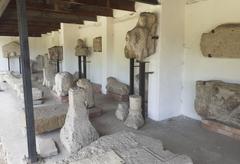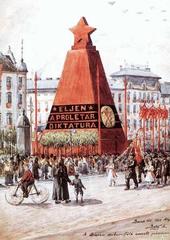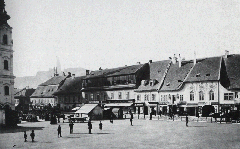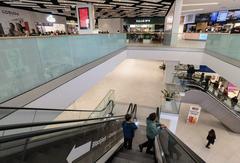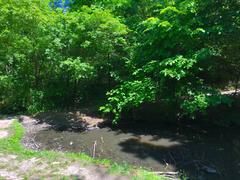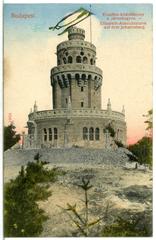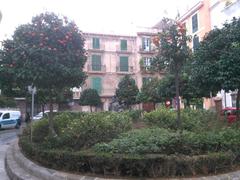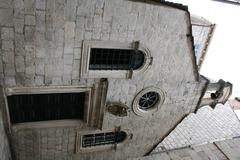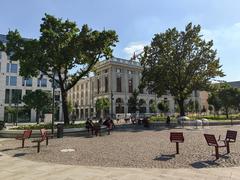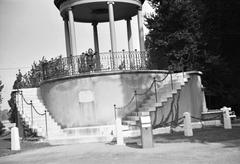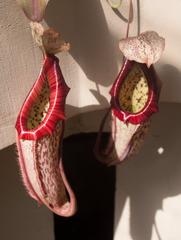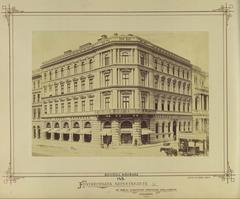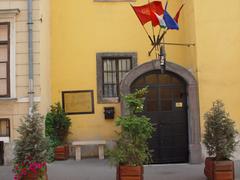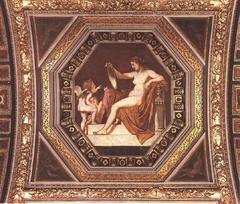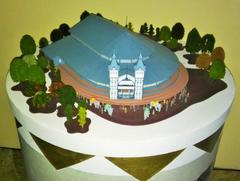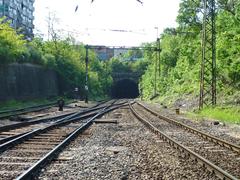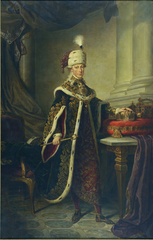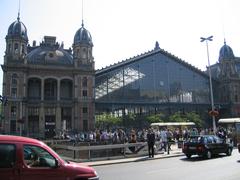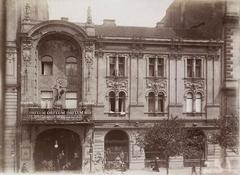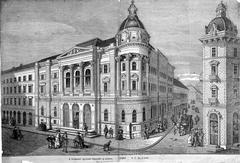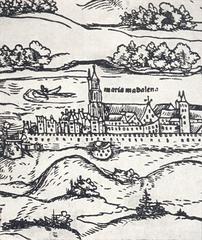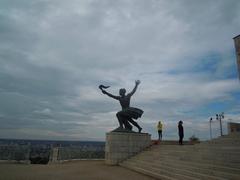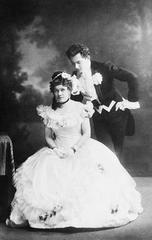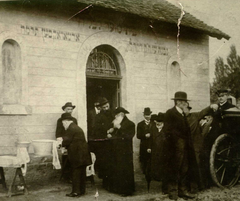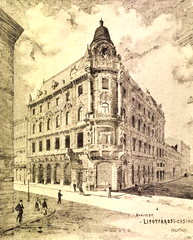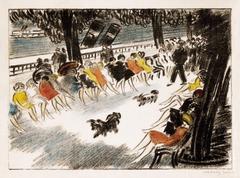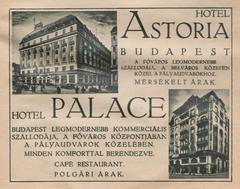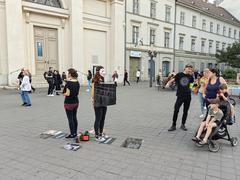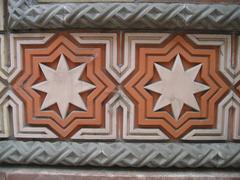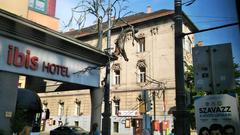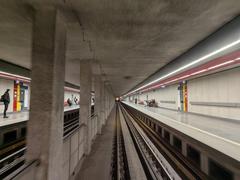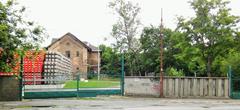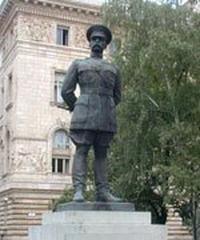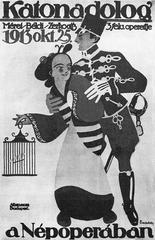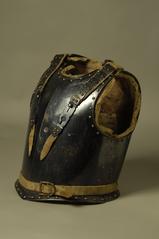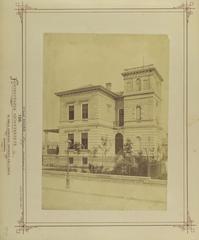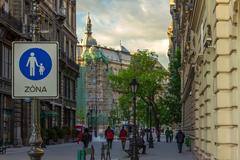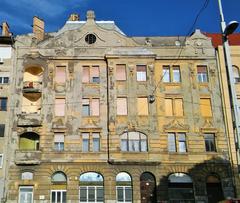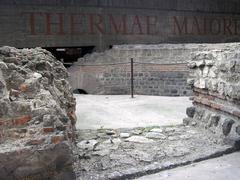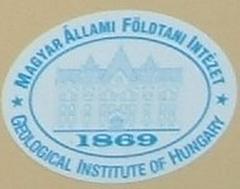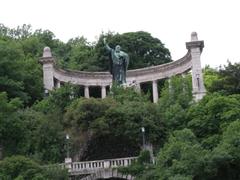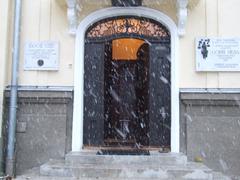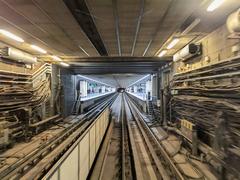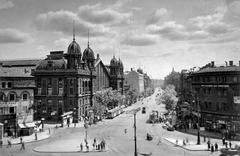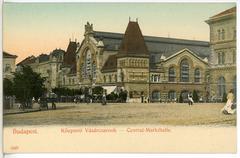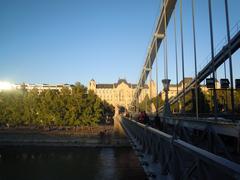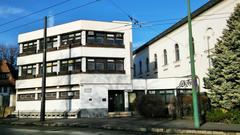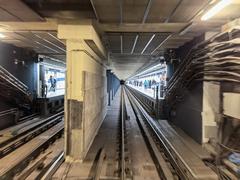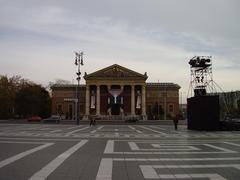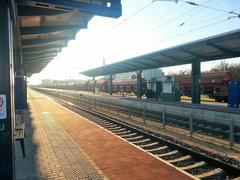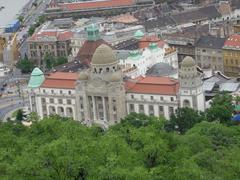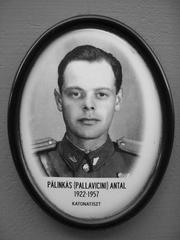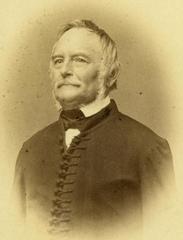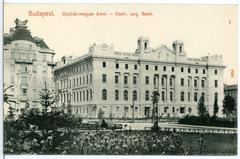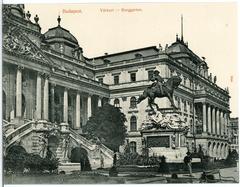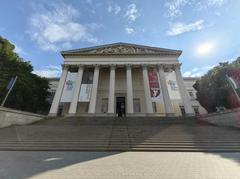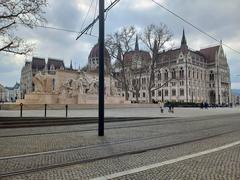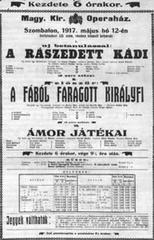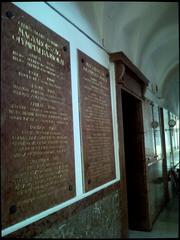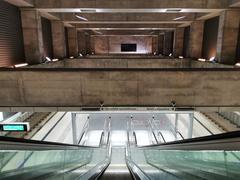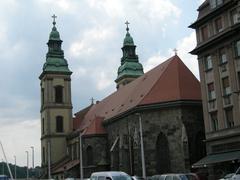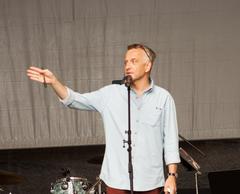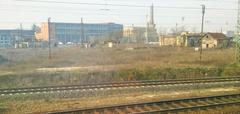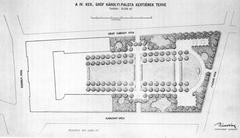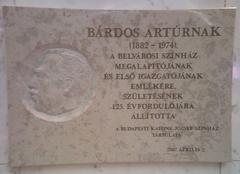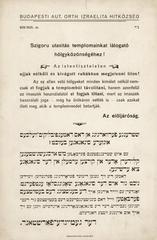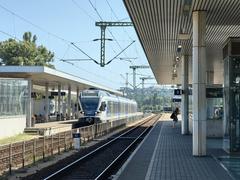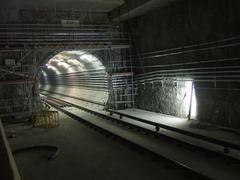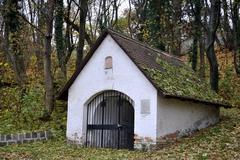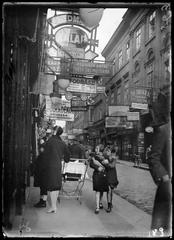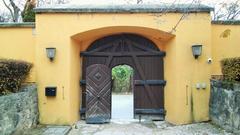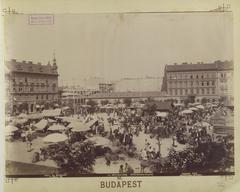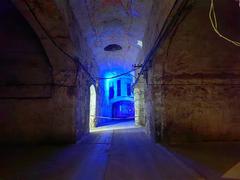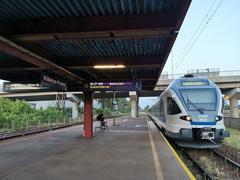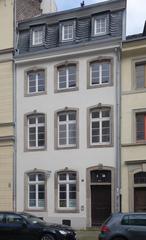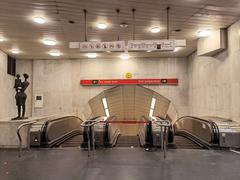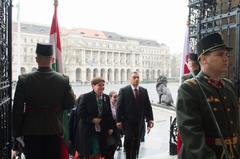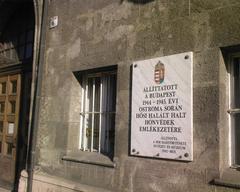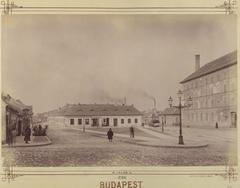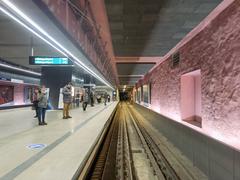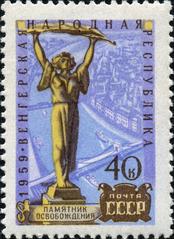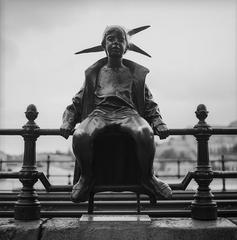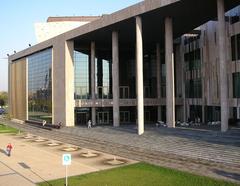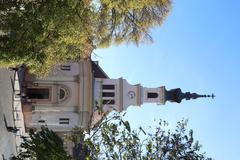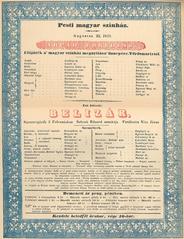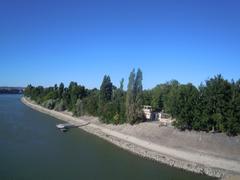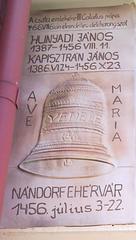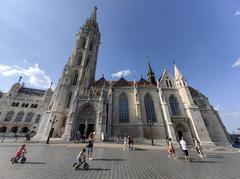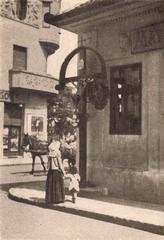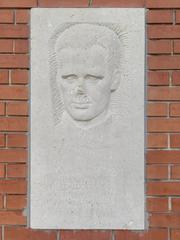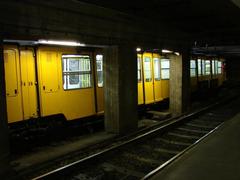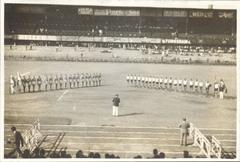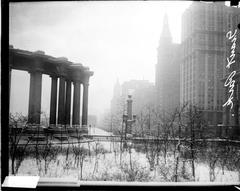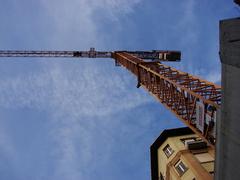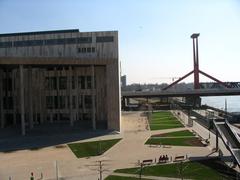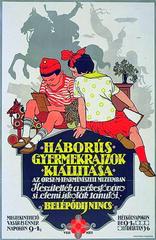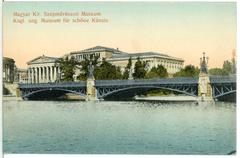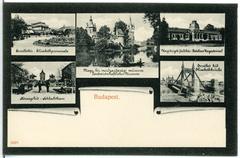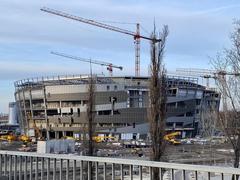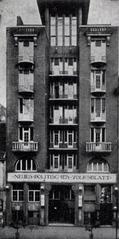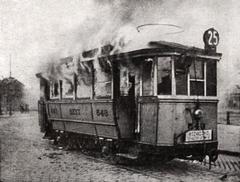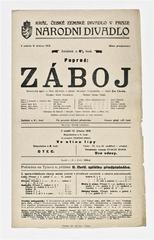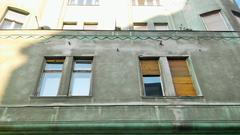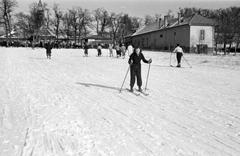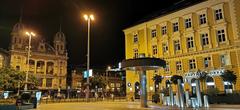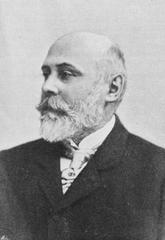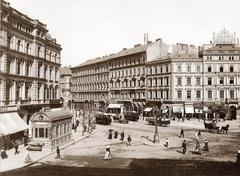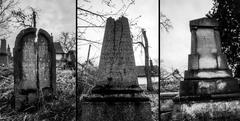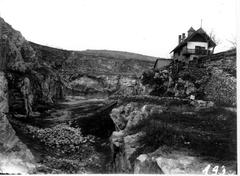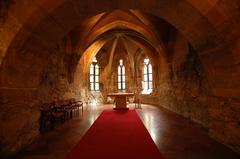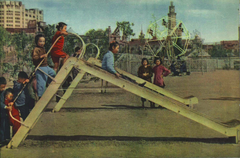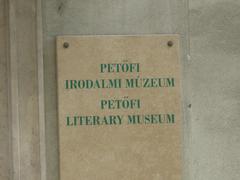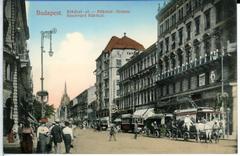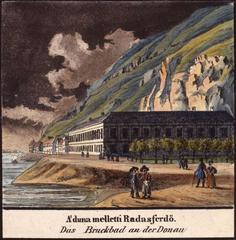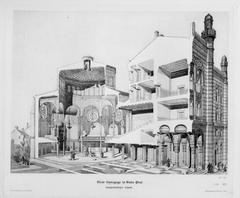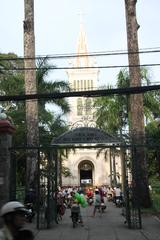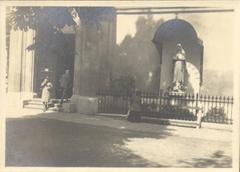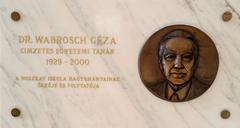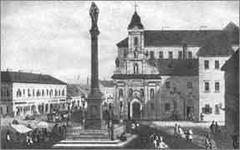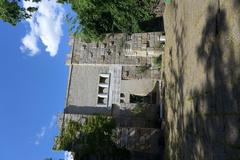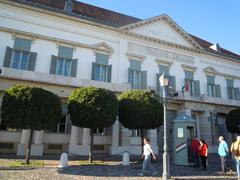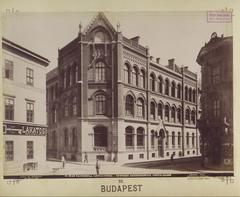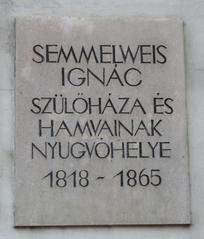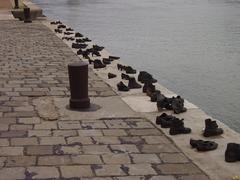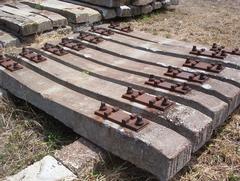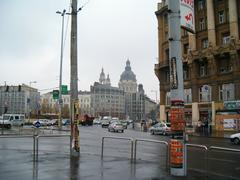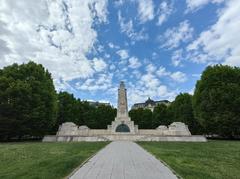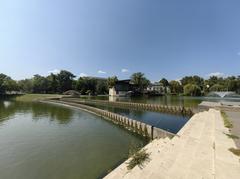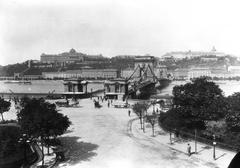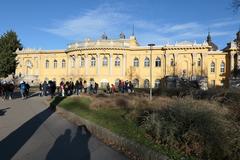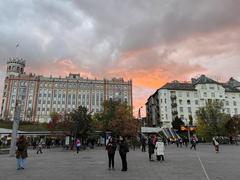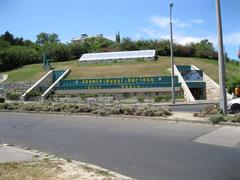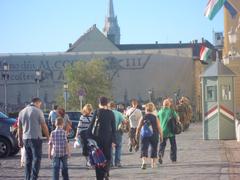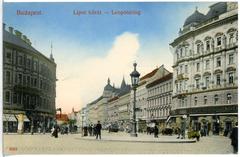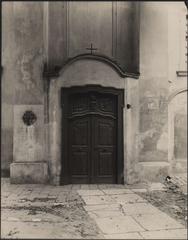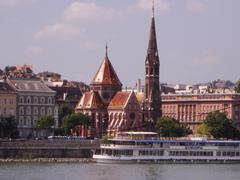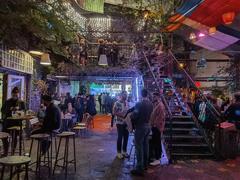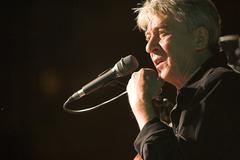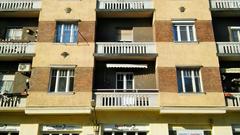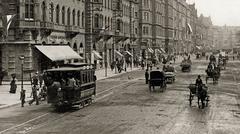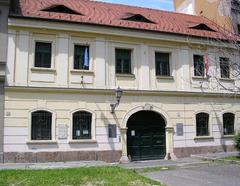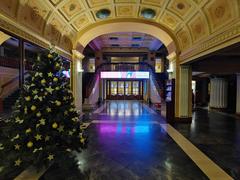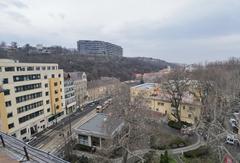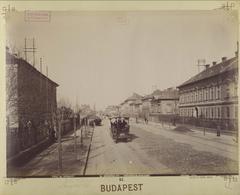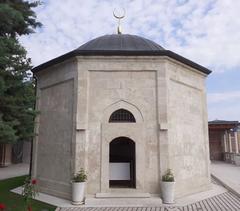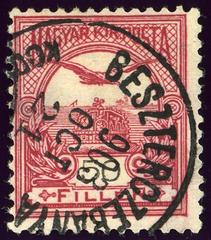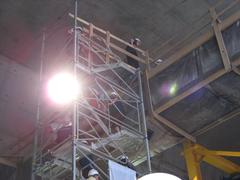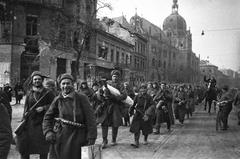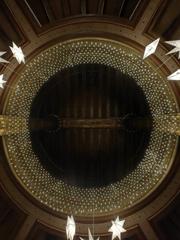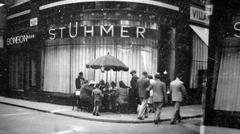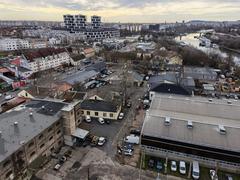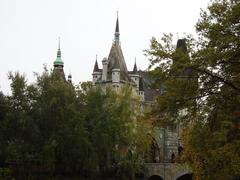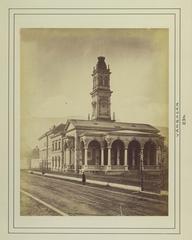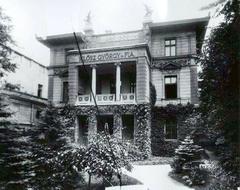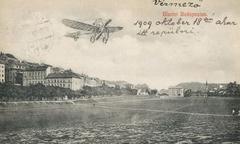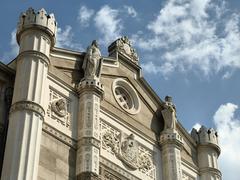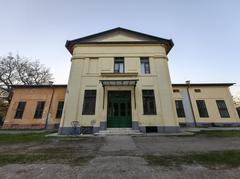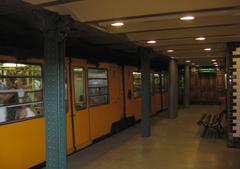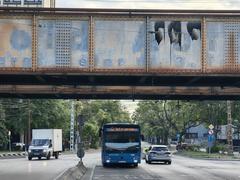Bethlen Square Status-Quo Ante Synagogue Budapest: Visiting Hours, Tickets, and Historical Significance
Date: 04/07/2025
Introduction
The Bethlen Square Status-Quo Ante Synagogue is a significant yet often overlooked landmark in Budapest’s Jewish Quarter. Located at István utca 15 in District VII—an area steeped in Jewish history—the synagogue stands as a testament to the resilience, heritage, and evolving traditions of Hungarian Jewry. This guide provides comprehensive information about visiting hours, ticketing, accessibility, and the synagogue’s architectural and cultural significance, ensuring visitors have all they need for a meaningful and respectful experience.
Historical Background
Origins and Architectural Context
The synagogue’s story begins with the Jewish Institute for the Deaf and Mute, established in 1876 as a vital center for education and care within the Jewish community. In 1931, as the needs of the community evolved, the institute’s building was transformed into a synagogue, marking a new chapter in the district’s Jewish life.
Design and Construction
The renowned Lipót Baumhorn—Hungary’s most prolific synagogue architect—designed the synagogue in partnership with his son-in-law, György Somogyi. Their work reflects an eclectic blend of Neo-Romanesque and Moorish Revival styles, evident in the intricate stained glass, ornate woodwork, and harmonious proportions of the sanctuary. This project was Baumhorn’s last before his death in 1932, crowning a career that shaped synagogue architecture across Hungary.
The Status Quo Ante Movement
Following the 1868–69 Jewish Congress, Hungarian Jewry split into three main branches: Orthodox, Neolog, and Status Quo Ante. The latter sought to maintain pre-congress traditions, bridging the gap between reform and orthodoxy. Bethlen Square Synagogue remains one of Budapest’s few active Status Quo Ante congregations, preserving unique liturgical customs and communal independence (Breaking Matzo).
Wartime and Postwar History
The Holocaust devastated Budapest’s Jewish community, leading to the closure of the institute in 1944 and the loss of many community members. After World War II, the building fully embraced its role as a synagogue and community center. Today, it also hosts McDaniel College’s Budapest campus, reflecting the adaptive reuse of Jewish heritage sites.
Architectural and Artistic Highlights
The synagogue’s exterior is modest, partially below street level—a reflection of historical urban constraints. The entrance bears a Hebrew inscription from Psalm 118:20: “This is the gate of the Lord,” signifying its sacred function (We Love Budapest).
Inside, the sanctuary seats up to 900 and features:
- Stained Glass Windows: Eighteen vibrant windows, crafted by the Knopp Ferenc workshop and donated by families in memory of loved ones. These depict Jewish holidays and symbols, with ongoing projects to add more, including a Hanukkah-themed window.
- Woodwork: Elaborately carved ark and pews, with a serene color palette enhancing the atmosphere.
- Layout: Traditional rectangular prayer hall, central bimah, and a women’s gallery—now adapted for a smaller congregation.
Visitor Information
Location
- Address: István utca 15, District VII, Budapest, Hungary
- Public Transport: Easily accessible via tram lines 4 and 6 (Bethlen tér stop), and Keleti pályaudvar metro station (M2, Red Line) is a short walk away (Travel Notes & Beyond).
Opening Hours
- General: Typically Tuesday to Sunday, 10:00 AM – 5:00 PM. Closed on Mondays and Jewish holidays.
- Services: Entrance is free for worshippers during prayer services. Check the official website or call ahead, as times can vary for holidays and events (Bethlen Square Synagogue Official).
Tickets
- Tourist Admission: Around 1000 HUF (approx. 3 EUR) for adults; discounts for students, seniors, and groups.
- Children: Under 12 enter free.
- Purchase: Onsite or via the official website. Booking is recommended for guided tours and larger groups.
Guided Tours
- Schedule: Daily tours, typically at 11:00 AM and 3:00 PM. Advance booking is advised.
- Languages: English and Hungarian; other languages may be available on request.
- Content: Tours cover history, architecture, and the synagogue’s role in the Jewish community.
Accessibility
- Wheelchair Access: Ramps at the entrance and accessible restrooms.
- Facilities: Informational plaques in multiple languages; friendly staff ready to assist.
Security
- Procedures: Expect bag checks and metal detectors at the entrance. Large bags are discouraged.
Visitor Etiquette
- Dress Modestly: Cover shoulders and knees; men should wear kippahs (provided). Women may wish to bring a scarf (PaulMarina).
- Conduct: Quiet, respectful behavior. Refrain from phone use during services. Always ask for permission before taking photographs, especially during religious events.
Cultural and Community Life
The synagogue is not only a place of worship but also a vibrant center for community and culture. Events include:
- Religious Services: Shabbat and Jewish holiday observances, open to visitors with prior arrangement.
- Cultural Events: Concerts, lectures, and exhibitions on Jewish art, music, and heritage.
- Festivals: Special programming during major holidays like Rosh Hashanah, Yom Kippur, Passover, and Hanukkah.
Nearby Attractions
Bethlen Square Synagogue’s location in the Jewish Quarter places it amidst key sites:
- Dohány Street Synagogue: Europe’s largest synagogue.
- Rumbach Street Synagogue: Moorish Revival gem.
- Kazinczy Street Synagogue: Renowned for community events.
- Jewish Museum and Holocaust Memorial Center: Essential for understanding Hungarian Jewish history.
The quarter is also home to kosher restaurants, cafés, and lively street art, perfect for further exploration.
Practical Tips
- Best Time to Visit: Weekday mornings or early afternoons offer a quieter experience.
- Language: Staff generally speak English; informational materials are available in multiple languages.
- Payments: Forint (HUF) is standard; credit cards widely accepted.
- Safety: Budapest is safe, but exercise standard precautions (Travel Notes & Beyond).
Photography
You are welcome to photograph the synagogue’s stunning stained glass windows, woodwork, and exterior. Early morning light is ideal. Always check with staff before photographing during services or private events.
Frequently Asked Questions (FAQ)
What are the visiting hours?
Generally Tuesday–Sunday, 10:00 AM–5:00 PM; check the official website for updates.
Is there an entrance fee?
Yes, a small fee is charged to support maintenance; worshippers enter free during services.
Are guided tours available?
Yes, in multiple languages, with advance booking recommended.
Is the synagogue accessible for visitors with disabilities?
The main prayer hall is accessible, though some areas (such as the women’s gallery) are only reached by stairs.
Can I attend services?
Yes, with prior arrangement; respectful behavior and dress are expected.
Are kosher food options nearby?
Yes, the Jewish Quarter offers several kosher eateries.
Visuals and Media
Alt text: Exterior of Bethlen Square Synagogue in Budapest, featuring the entrance with Hebrew inscription and urban streetscape. Alt text: Colorful stained glass windows depicting Jewish symbols inside Bethlen Square Synagogue.
Plan Your Visit
For the most up-to-date visiting hours, event schedules, and ticketing information, visit the Bethlen Square Synagogue official website. Enhance your visit with the Audiala app, offering audio tours and real-time updates.
Further Reading
- Bethlen Square Synagogue: A Hidden Gem of Budapest’s Jewish Heritage
- Bethlen Square Synagogue Budapest: Visiting Hours, Tickets & Historical Significance
- Visitor Experience and Practical Information
- OpenTripMap General Info
Summary:
The Bethlen Square Status-Quo Ante Synagogue is a vibrant, historical, and architectural treasure in Budapest’s Jewish Quarter. Its unique blend of tradition, artistry, and community engagement offers visitors a profound and memorable experience. With accessible facilities, informative tours, and a central location near other major Jewish landmarks, it is an essential stop for anyone interested in Budapest’s rich cultural tapestry. Plan ahead, dress respectfully, and immerse yourself in this living heritage.
